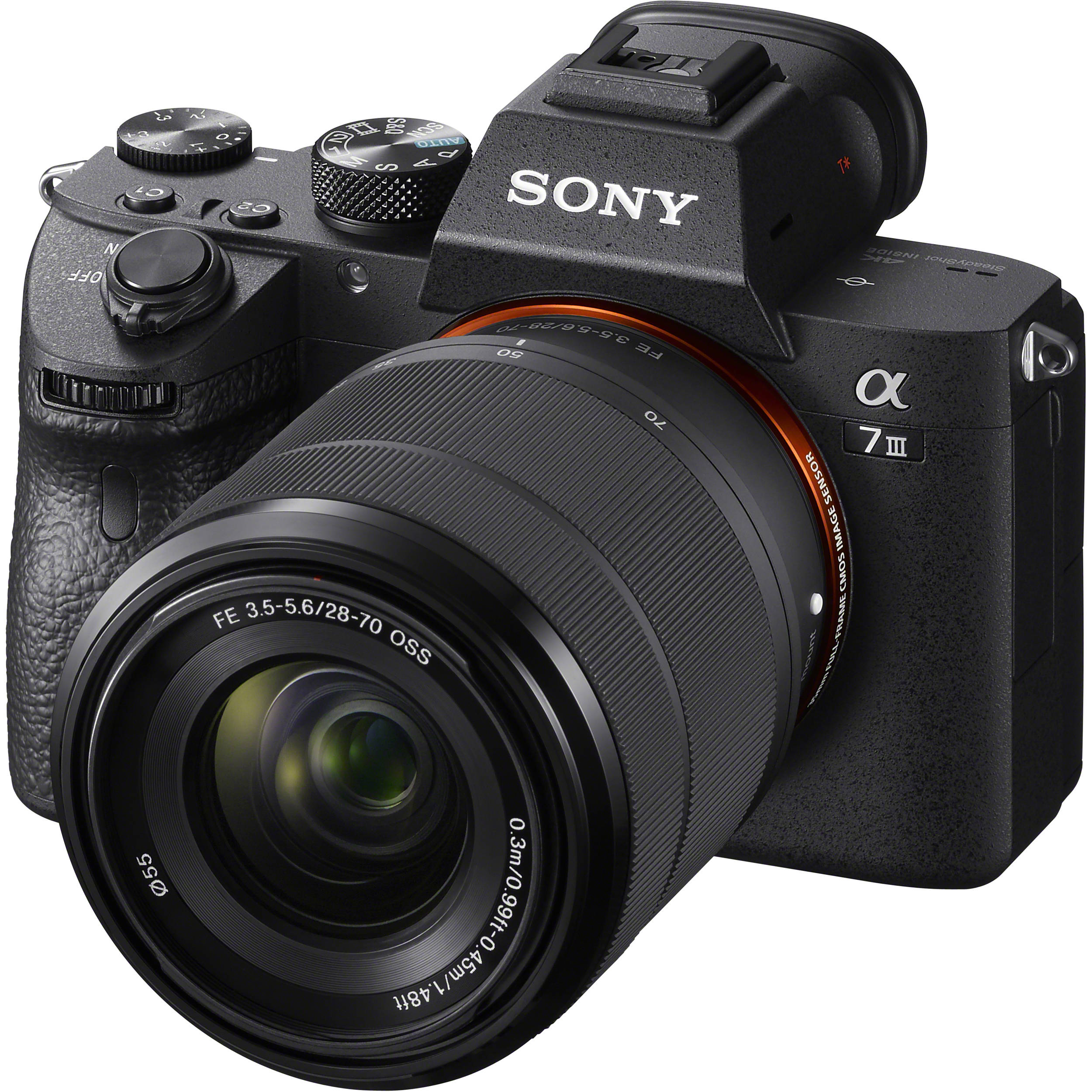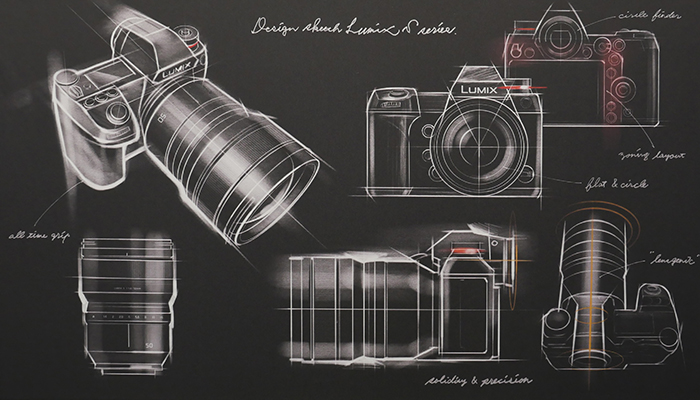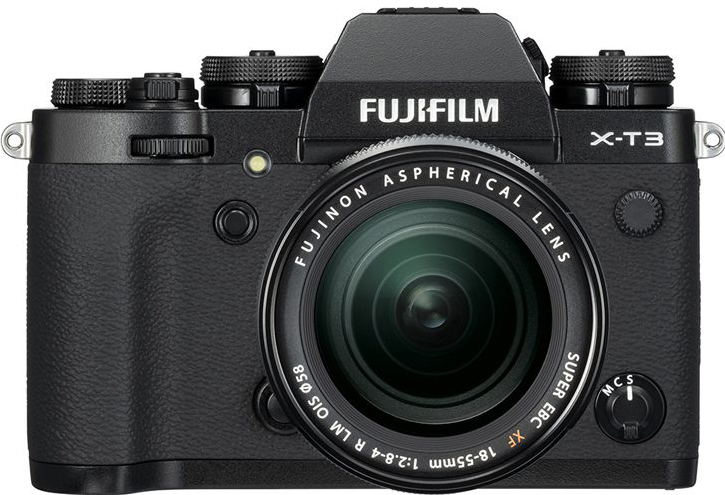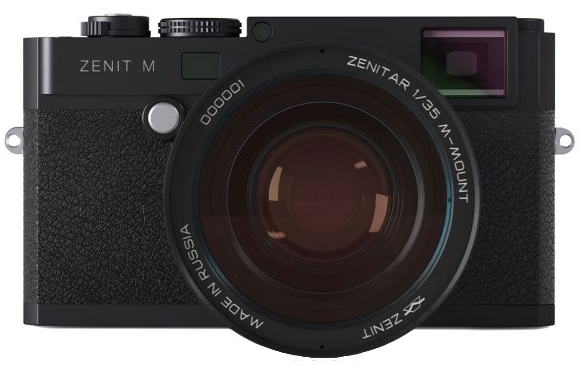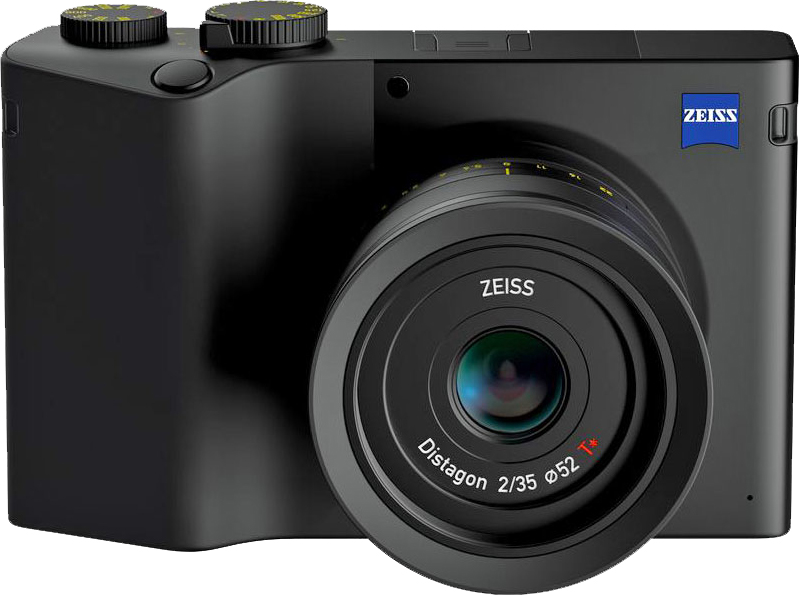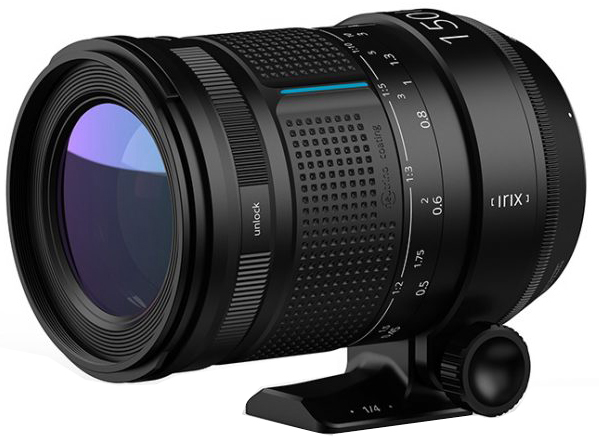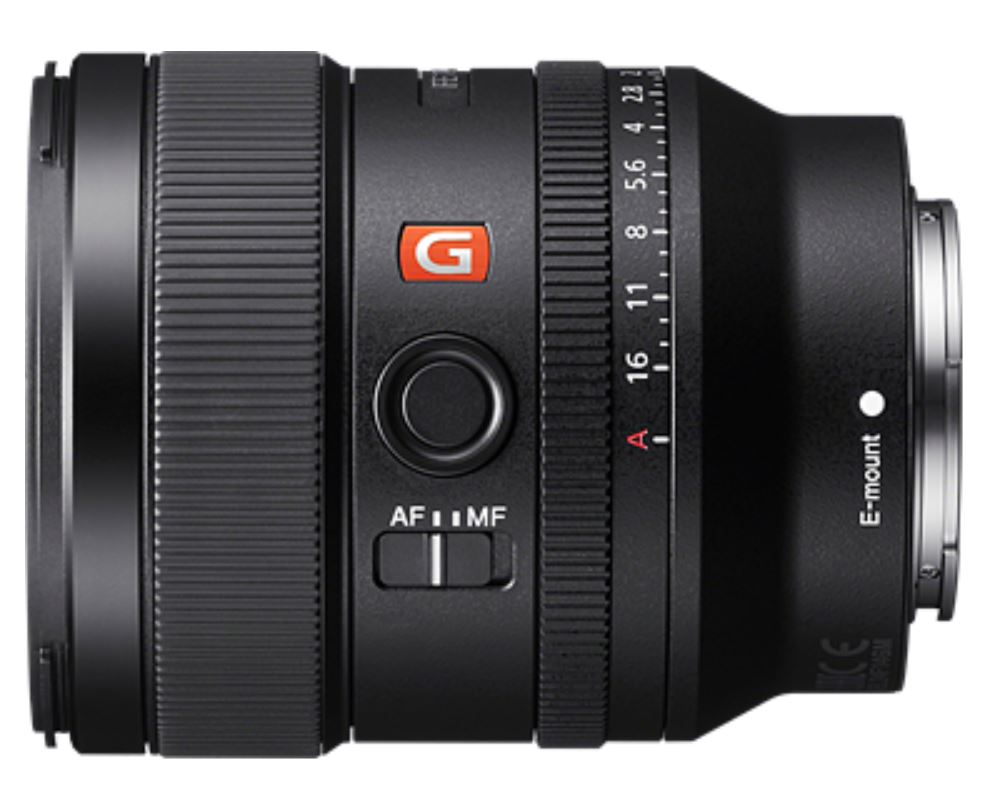|
|
News from Photokina 2018 |
Main trend
|
Photokina 2018 was dominated by full-size mirrorless cameras. Consumers are turning to these cameras currently only offered by Sony. |
|
so they are currently four systems that are mirrorless full format. Bayonets exceeding 54 mm in diameter could even accommodate 30x45 mm sensors if the lenses had a larger image circle.
|
Brand |
Diameter in mm |
Flange focal distance in mm |
Introductory year |
|
Sony E |
46.1 |
18 |
2010 |
|
Leica L |
51.6 |
20 |
2014 |
|
Nikon Z |
55 |
16 |
2018 |
|
Canon RF |
54 |
20 |
2018 |
Note that the FujiFilm X mount could also receive a Full Format sensor but it would require dedicated lenses.
|
Fujifilm X |
44 |
17.7 |
2012 |
Anyway and because the mirrorless camera market is the increasing market, there is a risk that, in the coming months and years, there will be a major fight on this segment market, which should reduce prices and introducing new cameras. This will be done to the detriment of conventional DSLR systems.
Middle Format
|
Fujifilm GFX50R |
The Fujifilm GFX50 R is a mirrorless medium-format that takes the processor and sensor of the GFX50 S. It is smaller and cheaper than the 50 S. It is a weather-sealing camera with a 51.4MP medium format CMOS sensor (43.8 × 32.9mm) with Bayer filter array, an OLED electronic viewfinder of 3.69 MP, a 3.2" 2.36M-dot touch LCD tilts up/down, a burst mode of 3 fps continuous shooting, a 1080 / 30p video mode, a dual SD card slots (UHS-II), Wi-Fi and Bluetooth modules.
Full 135
|
Sony A7 III |
Nikon Z6 |
Canon EOS R |
The stars of this Photokina are undoubtedly full-format hybrid cameras.
Sony has launched its third-generation hybrid A7 mark III and A7R mark III and Sony is now the US leader with its Alpha A7 and A9 series. Canon and Nikon reacted by presenting full-size hybrid cameras with a new mount.
Nikon presented two cameras, the Nikon Z6 and Nikon Z7, respectively with 24 and 45 million pixels' sensor and a new mount called Z with a very wide mechanical draw of 16mm and an internal diameter of 55 mm. These cameras are positioned frontally against the Sony and constitute a credible alternative, Nikon indicates also the list of the coming lenses in 2019 and 2020.
These two Nikon models may be followed by other full-format or APS-C Z cameras.
Canon introduces the new Canon EOS R with also a new RF mount with a mechanical draw of 20mm and an internal diameter of 54 mm different from the EOS M hybrid mount which has a mechanical pull of 18mm and an internal diameter of 47 mm.
The Canon EOS R has a 30.3 megapixel sensor with low pass filter (6720 x 4480 px) inherited from the EOS 5D Mark IV. This sensor is no backlit or BSI and is not stabilized unlike those of Nikon and Sony. The Canon EOS R has a very fast autofocus with Dual Pixel AF, a DIGIC 8 processor, an EVF OLED of 3.69 million points, a control screen in black and white like the Nikon and a frame rate of 5 fps with AF tracking.
The Canon EOS R is available at a price of $ 2,300 € camera only but with the EF-ES base adapter ring (October 2018).
L-Mount Alliance
|
Panasonic S1R |
Panasonic S1 design |
17 years after the 4/3 consortium and 10 years after the micro 4/3, Panasonic, Leica and Sigma launch the "L-Mount Alliance". Full-size and APS-C mirrorless cameras to compete better with Nikon, Canon and Sony. The alliance takes over Leica's L-mount, launched in 2014 and used by the company for its mirror-less TL APS-C and full-chassis mirror models. With this alliance, Panasonic and probably Sigma will soon unveil their own L-mount cameras and lenses.
Currently Leica has already seven L-mount lenses: The Summicron 90mm f/2, a 75mm f/2, a 50mm f/2 and soon a 35mm f/2 and three zooms a 16-35mm f/3,5-4.5, a 24-90mm f/2.8-4 and a 90-280mm f/2.8-4.
Thanks to its short flange focal distance and with adaptation rings, the cameras of the alliance can use lenses of other brands: Nikon or Canon ...
Olympus don't join this alliance, preferring to stay on the micro 4/3 format which despite the denials of Panasonic loses credibility.
At Photokina, Olympus did not present camera or new announcement.
Panasonic introduces also two 35mm format cameras that will be available in the first quarter of 2019. The Panasonic S1 and S1R are two full-frame mirrorless L-mount cameras that are different only by their sensor: The S1 will be equipped with a sensor of 24 million pixels and will come face to the model A7R of Sony or the Z6 of Nikon while the S1R will be opposed to the A7R III of Sony or the Z7 of Nikon with a 47 MP sensor. The two cameras, not very compact, will have video 4K/60p, a dual SD and XQD slot and a double stabilization.
In addition to the Leica lenses, Panasonic announces three lenses: a 50 mm f / 1.4, a 24-105 mm and a 70-200.
APS-C Formats
|
Fujifilm XT3 |
Nikon D3500 |
The Fujifilm X-T3 is an enthusiast SLR-style mirrorless camera with a new 26MP BSI CMOS X-Trans sensor and updated hybrid AF system with 425 phase-detect points and nearly 100% coverage. The camera has the same analog controls for shutter speed, a 3.69M-dot electronic viewfinder, a tilting LCD touchscreen, a 4K/60p video mode. This camera shoots continuously at 20 fps (e-shutter) or 11 fps (mechanical shutter) at full resolution.
The Nikon D3500, launched in August 2016 replaces the D3400 and shows that Nikon intends to continue the classic F-mount system. This camera keeps a 24.2 million pixel CMOS sensor DX format (23,5 × 15,6 mm) without antialiasing filter, a shooting mode at 5 frames per second, a single SD slot, a 11-point AF system, a video mode Full HD video mode to 1920x1080/60P with continuous autofocus.
Leica all-round
|
leica S3 |
Zenith M |
Leica is always very present at the Photokina. This year, in addition to its participation in the L mount alliance, Leica also announced the Leica S3, a medium format camera that is an evolution of the S2 released in 2008. The S3 will have a resolution of 64 megapixels against 37.5 megapixels for the S2. It has a large and bright SLR viewfinder, a 3 fps burst shooting and a 4K video capture. The Leica S3 should arrive in the spring of 2019.
More amazing, Leica announced a collaboration with the Russian brand Zenith during a joint event. 30 years after the end of its mass production, the Russian public conglomerate Rostec, which controls the Russian manufacturer and the KMZ plant that produced the Zenith cameras announced its intention to bring the brand back to market by offering "a luxury camera, comparable to Leica cameras". The new model is called Zenith M. It looks like the Leica M (type 240), but will be manufactured in the Krasnogorsk (KMZ) historical factory near Moscow and assembled by Leica in Germany; it has a full 24 megapixel CMOS sensor, a 3-inch LCD screen, 1080p video recording, ISO 200 to 6400, 1/4000s shutter, a burst mode to 3 fps.
This camera will be delivered with a Zenitar lens 35 mm f/1.0 completely designed and manufactured in Russia, with 100% Russian components and materials. Its price would be between 5,000 and 6,000 euros.
Nostalgia has a certain price. Forty years ago, Zenith E was the cheapest SLR of the market.
Expert digital compacts and instant cameras
|
Zeiss ZX1 |
|
Zeiss presented at Photokina the ZX1, a non-functional camera with full-sized 37.4 megapixel sensor (7488 x 4992 pixels) and a fixed focal length 35 mm f/2.0 consisting of 8 elements in 5 groups with two aspherical lenses. It has a sensitivity range of 80 to 51,200 ISO, a 4K/30p UHD video mode.
The Zeiss ZX1 runs on Android with Lightroom CC and 512 GB of memory and NFC, Wi-Fi and Bluetooth 4.1 LE to be able to take pictures, edit them and share them with a single camera probably offered at more than 5000 €.
Ricoh officially announces the third iteration of its compact expert: The Ricoh GR III. It has a new stabilized 3-axis sensor of 24 Mpx coupled to a new processor and a new hybrid autofocus. The fixed lens of 28mm f/2 with 7 elements divided into 5 groups.
Lenses and others
|
Gopro Hero7 black |
Manifold camera |
Irix 150 mm f/2.8 macro |
Sony 24mm f/1.4 GM |
GoPro is slowly recovering and has refocused on the action cameras which it has sold more than 30 million copies. GoPro has just introduced three GoPro Hero 7 cameras: the black version with a new mode of electronic stabilization "Hypersmooth", the possibility of filming live to a social network, a video mode 4K60 Video and photos at 12MP. It is proposed at $ 399. Two other silver and white models complete the 2018 range.
Facebook and RED Digital Cinema announced a collaboration to build the world’s first end-to-end solution for 3D and 360 video capture. At Photokina, they presented first look of the Manifold camera. it is a studio-ready camera system for immersive 6DoF storytelling built with 16 RED(R) Helium 8K(R) Sensors arranged to allow full 360 6DoF capture with record raw from 16 cameras running 8k @60 fps simultaneously.
After two large-angle 11 mm f/4 and 15mm f/2.4 lenses, Irix announces a new macro lens, the Irix 150mm f/2.8 Macro 1:1. It allows focus from 34.5cm to infinity and is full format compatible, this telephoto lens will be available in Nikon F mount, Canon EF and Pentax K.
The Sony FE 24mm f/1.4 GM is a new wide-angle prime dust and moisture resistant lens for the Sony Alpha full-frame mirrorless camera system. It features 13 elements in 10 groups including two XA elements and three ED glass elements, offers a minimum focusing distance of 24cm. It has a circular 11 blade diaphragm.
Sigma has also announced several lenses at Photokina.
The Photokina becomes annual, next appointment in 2019.
pierre j.



